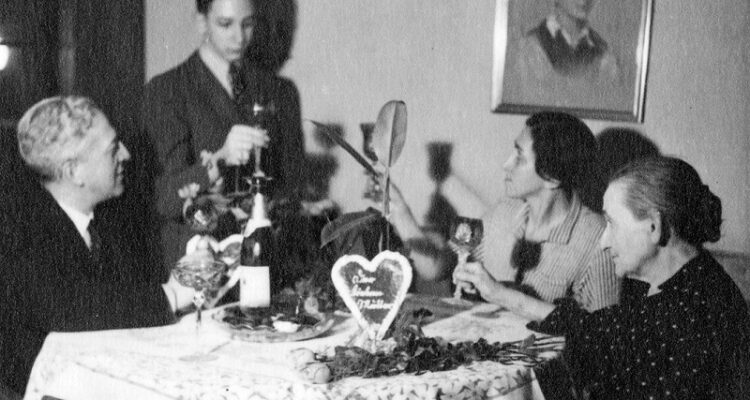Sent to Australia as an “enemy alien” by Churchill’s government, Bern Brent spent decades challenging conventional accounts of the internees’ lives.
Most of the 2050 or so Dunera internees — or Dunera boys, as they are commonly known — were German and Austrian Jews, many of them refugees from Hitler’s regime. In 1940, on Churchill’s orders, these “enemy aliens” were arrested in Britain and deported to Australia, where they were to be held for the duration of the second world war. The Dunera was the ship that brought them to Australia, and Bern Brent, who died last week at 100 years of age, was among the internees on board.
I was lucky enough to work with Ken Inglis and friends on Dunera Lives: A Visual History, published in 2018. The book is an attempt to tell something of the Dunera story through 500 images, one of which attracted far more comment than any other. This was a grainy black-and-white photograph from Bern’s collection taken on 14 December 1938, a month after the anti-Semitic violence of Kristallnacht.
The photo shows fifteen-year-old Gerd Bernstein (Bern’s original name), dressed in a suit, raising a glass to his family. His mother Helena, father Otto and maternal grandmother Sophie Maas sit at a table in their Berlin home at Wielandstrasse 17. A picture of young Gerd hangs on the wall.
Read the article by Seumas Spark on Inside Story.

